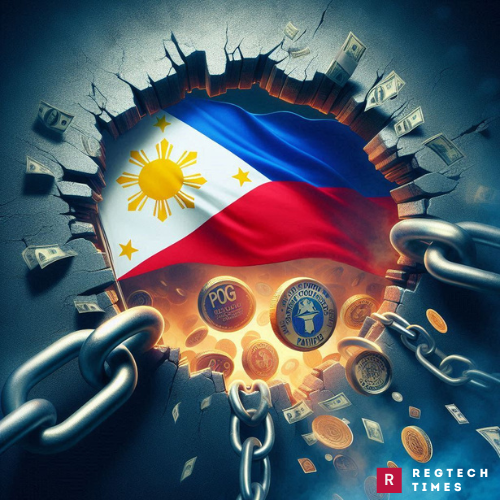The recent ban on Philippine offshore gaming operators (POGOs) represents a significant step toward improving the country’s financial reputation and combating illicit activities. This decisive action by President Ferdinand R. Marcos, Jr. aims to address long-standing issues related to money laundering and other criminal activities, potentially facilitating the Philippines’ exit from the Financial Action Task Force’s (FATF) “gray list.”
A Move to Clean Up Financial Practices
President Marcos’ order to shutter all Philippine offshore gaming operators by the end of the year highlights the administration’s commitment to tackling financial crimes. The Bangko Sentral ng Pilipinas (BSP) Governor Eli M. Remolona, Jr. expressed optimism that this ban would lead to a notable decrease in money laundering activities, thus supporting the country’s efforts to meet FATF requirements.
The FATF gray list includes jurisdictions under increased monitoring due to deficiencies in their anti-money laundering and counter-terrorism financing measures. Being on this list impacts a country’s ability to attract foreign investments and engage in international financial markets. The Philippines has been on the gray list for three consecutive years, with the FATF citing the need for improvements in several areas, including the mitigation of risks associated with casino junkets.
Macau Junket Operations: China Launches Crackdown on Illegal Money Exchanges
Economic Repercussions and Opportunities
The ban on Philippine offshore gaming operators is expected to have mixed economic repercussions. On one hand, Chester B. Cabalza, founding president of the International Development and Security Cooperation, suggests that the ban will pave the way for more legitimate investments, boosting the country’s economic prospects. He believes that by eliminating the illicit activities tied to Philippine offshore gaming operators, the Philippines can attract more legal and morally sound entertainment investments, contributing to inclusive growth.
Guo Hua Ping: True Identity of Suspended Mayor Alice Guo Revealed During Identity Crisis
On the other hand, the property market, which has seen significant investments from POGO operators, might experience some turbulence. Bienvenido S. Oplas, Jr., president of the Minimal Government Thinkers think tank, notes that while the ban could enhance tourism by attracting foreign gamblers to physical casinos, it should not be rushed to avoid negative impacts on the property sector.
Alleged Chinese Spy Alice Leal Guo Infiltrates Philippine Town, Buys Land Near US Airbase
Resilience of the Banking Sector Amid the Philippine Offshore Gaming Operator Ban
Fitch Ratings has provided a reassuring outlook on the Philippine financial system’s ability to withstand the fallout from the Philippine offshore gaming operators ban. Despite potential challenges, the report emphasizes that Philippine banks possess sufficient buffers to absorb any related losses. The sector’s strong performance, characterized by record-high margins and robust loan growth, is expected to mitigate any negative impacts.
Alice Guo: The Alleged Chinese Spy Entangled in Singapore’s $3 Billion Money Laundering Scandal
Furthermore, the influence of Philippine offshore gaming operators on the property market has diminished over time, with POGOs currently occupying a smaller fraction of Metro Manila’s office stock compared to their peak years. This reduced dependency, coupled with diversified real estate portfolios, suggests that any adverse effects on property-related bank assets will be limited.
Broader Implications
While the Philippine offshore gaming operators ban addresses a significant source of money laundering, experts caution that other sectors remain vulnerable. Filomeno S. Sta. Ana III, coordinator of Action for Economic Reforms, highlights that money laundering can thrive in various industries, including real estate, mineral extraction, and the trade of luxury goods. He advocates for lifting strict secrecy rules on bank deposits to further combat money laundering.
The successful removal of the Philippines from the FATF gray list requires a comprehensive approach that extends beyond the Philippine offshore gaming operators ban. Strengthening the overall anti-money laundering framework, enhancing regulatory oversight, and fostering a culture of transparency and accountability are essential steps.
FATF Evaluation Results Shock Monaco, Venezuela; Turkey and Jamaica Escape Graylist
The Philippine government’s ban on Philippine offshore gaming operators represents a bold move to address money laundering and related illicit activities. This action is a strategic component of the broader effort to enhance the country’s financial integrity and improve its standing with international regulatory bodies like the FATF.
While the ban poses certain economic challenges, it also presents opportunities for attracting legitimate investments and bolstering tourism. By continuing to strengthen its regulatory framework and addressing vulnerabilities across various sectors, the Philippines can pave the way for a more robust and transparent financial system, ultimately achieving its goal of exiting the FATF gray list.


